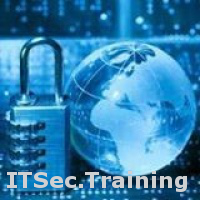Building a Cyber Security Career
Senior Management- Chief InfoSec Officer (CISO)
- Security Director
- Security Manager
- Security Architect
- Security Manager
- Security Architect
- Sr. xxxxx
- Team Leader
- Security Engineer
-
Cryptographer
- Forensics Expert
- Incident Responder
- Penetration Tester
- Security Administrator
- Security Analyst
- Security Auditor
- Security Consultant
- Security Software Developer
- Security Specialist
- Security Code Auditor
- Vulnerability Assessor
Focusing on Cyber Security
You’ll notice that we’re only covering cyber security job titles. Despite the fact that a lot of security specialists get their start in general IT – e.g. a System Administrator, Software Developer or Network Engineer – we chose to stick close to the source.
When it makes sense, we’ve mentioned related jobs in the career path section (e.g. Software Developer -> Security Software Developer). But if you feel there’s an important security job we’re missing, please let us know.
Broad vs. Specific Details
There is always a lot of crossover in IT security jobs – a Security Administrator might assume the responsibilities of a Security Analyst, a Security Consultant could take on the role of a Pen Tester or Vulnerability Assessor. So we’ve tried to keep our descriptions fairly broad.
On the same note, our lists of hard skills and certifications are not written in stone. They’re simply suggested starting points. You may find some of them unnecessary; you may require more specialized skills for your dream job. Again, feel free to take away what you find useful.
General Career Advice
Get a Sense of the Job Territory
Thanks to the pace of technology, the field of cyber security is changing at nauseating speed.
Once you’ve got a cyber security career in mind, we recommend you do a quick search for that job on major employment sites (e.g SimplyHired, Monster, Indeed, etc.). This will give you a sense of what kinds of current qualifications, certifications and degrees employers want to see.
Do your research.
Hone Your Street Skills
Employers are looking for job candidates with experience of real-life security scenarios.
- Go to security conferences
- Participate in hacking contests
- Think about taking SANS or other courses
- Contribute to open source projects
- Apply for cyber security internships
Get hands-on experience.
Talk to Peers and Mentors
Your best source of job information? People. If you’re dancing around the idea of a job in cyber security, find out what it’s really like.
- Talk to fellow hackers, senior students and conference goers
- Browse and post questions on IT security message boards (e.g. Information Security Stack Exchange)
- Write to bloggers you admire
- Ask your professors for referrals
The right mentor will know all kinds of things:
- What kinds of security certifications you need (and how to persuade your current employer to pay for them)
- Where you can find projects to build your technical skills
- The pros and cons of a job in government, non-profits, start-ups, military service, etc.
- And a host of other insider tips
When in doubt, ask.

